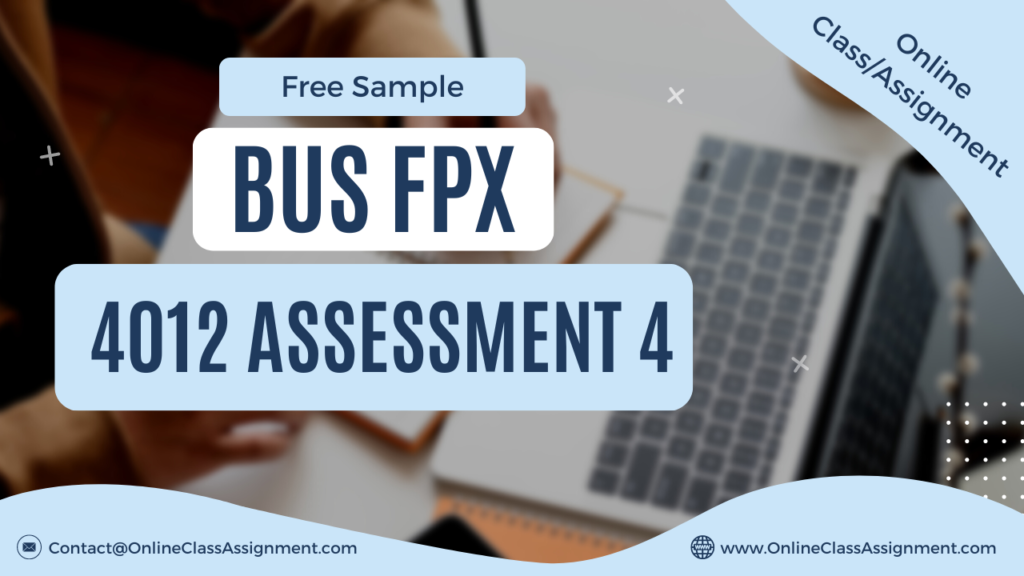
BUS FPX 4012 Assessment 4 Leadership Analysis in Organizations
Student Name
Capella University
BUS-FPX4012 Leadership in Organizations
Prof. Name
Date
Leadership Analysis in Organizations
Leadership Theory
According to Cashman (2008), leadership can be defined as “authentic influence that creates value” (p. 24). However, this definition encompasses several crucial elements that warrant further exploration. Authenticity involves a profound self-awareness that acknowledges strengths, vulnerabilities, and areas for development. Influence extends beyond mere authority, emphasizing meaningful communication that resonates with individuals by emphasizing genuine priorities. Value creation, the final component, entails a passionate commitment to serving various stakeholders, including oneself, teams, organizations, communities, and the world, ensuring sustained performance and contribution over time.
Interview Questions and Analysis
During the interviews with leaders, the focus predominantly centered on authenticity and influence, assuming inherent value creation due to their high-ranking positions. Questions probed into the interviewees’ self-awareness, adaptability to change, and comprehension of short-term versus long-term transformation. Responses indicated a robust level of self-awareness and a firm commitment to personal growth, reflecting Cashman’s (2008) principles of authenticity and influence.
Change Mastery and Business Realities
Contrary to the notion of rapid transformative change in contemporary business environments, leaders in sectors such as defense and intelligence may experience change at a different pace due to bureaucratic processes. Nevertheless, both interviewees emphasized the significance of change, albeit within the context of personal development rather than immediate organizational upheaval.
Continuous Learning and Self-Reflection
Both interviewees showcased a dedication to continuous learning, aligning closely with the necessity of adaptation in the face of perpetual change. The interview process itself underscored the value of open-ended discussions in eliciting thoughtful insights and fostering ongoing learning.
Summary Statement
The interview experience underscored the importance of engaging in organic conversations with leaders, facilitating a deeper understanding of their perspectives and experiences. Such interactions not only enhance interpersonal relationships within the workplace but also contribute to continuous learning and individual growth. Embracing both formal and informal interviews, alongside ongoing leadership development dialogues, can substantially enhance leadership effectiveness across all organizational levels.
References
Cashman, K. (2008). Leadership From the Inside Out: Becoming a Leader for Life (2nd ed., expanded). Berrett-Koehler Publishers.
Get Capella University Free Business Samples
BUS FPX 3007
BUS FPX 3011
BUS FPX 3021
BUS FPX 3022
BUS FPX 3030
BUS FPX 3040
BUS FPX 3050
BUS FPX 4012
